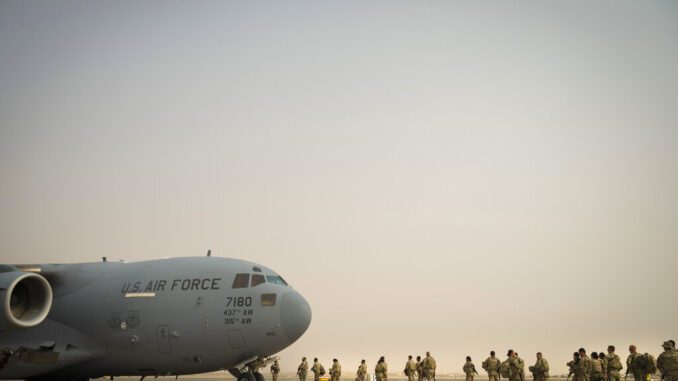
BAGHDAD — The U.S. Air Force said it was the subject of a “propaganda attack” by a previously unheard-of Iraqi militant group that falsely claimed it had launched a drone attack targeting American troops at an air base in Kuwait.
The statement by the Air Force’s 386th Air Expeditionary Wing came hours after the group calling itself Al-Waretheen, or “The Inheritors,” put out an online statement claiming that it targeted Kuwait’s Ali Al Salem Air Base. The statement included a video showing a drone being launched from a stand, but offered no evidence of an attack or any damage done at the base.
The statement claimed the alleged attack aimed to avenge the U.S. drone strike that killed a prominent Iranian Revolution Guard Gen. Qassem Soleimani in Baghdad in January 2020.
The air base is located a few dozen miles from the Iraqi border.
“The misinformation falsely stated an Iranian militia group used (drones) to carry out an attack on base,” the Air Force statement to The Associated Press said. “No such attack occurred.”
The statement suggests the U.S. believes that Al-Waretheen is likely an Iranian group, though it described itself as Iraqi.
Some 13,500 American troops are stationed in Kuwait, which also hosts U.S. Army Central’s forward headquarters. Those forces have supported the U.S. invasion of Iraq in 2003 and later operations against the Islamic State group.
Kuwait’s Al-Qabas newspaper, quoting anonymous “responsible” sources, called the claims about an attack “completely untrue.”



